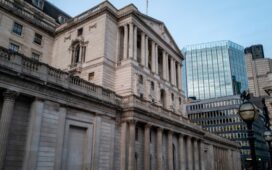
No matter how experienced a traveller you are, airports can be stressful. However, one former airline CEO has shared a simple piece of advice he claims could make flying easier.
Doug Parker, who served as the American Airlines CEO between 2001 and 2023, recently appeared on an episode of the Airlines Confidential podcast, where he was asked to share his best travel tips.
While he admits that ‘there are no silver bullets’ that he knows about and others don’t, he said that he always offers the same piece of advice to his friends and family while travelling: never check a bag.
He explained: ‘It’s not that airlines don’t know how to get [the bag] there, but it’s just incredibly complex and it makes your experience much more difficult.
‘So that’s my major tip to anybody, just figure out a way, no matter where you’re going, to get it into your carry-on and don’t check a bag.’

Many travellers prefer to keep their luggage as close as possible to avoid potential setbacks.
And they might be onto something. Between 2021 and 2024, the Air Travel Consumer Report found that American Airlines ranked the highest of 15 US airlines in terms of the likelihood of mishandled luggage.
In the past three years, the airline was found to have lost or misplaced 1.7 million pieces of luggage out of more than 200 million.
Travelling with a carry-on isn’t just about convenience, though – it’s easier on the wallet too. Checking a bag on an American Airlines domestic flight costs £32 ($40) or £28 ($35) if you pay online.
However, the airline does not charge for carry-on bags and passengers are allowed one carry-on bag and one personal item free of charge, regardless of the ticket type.
If you want to check in a second bag, it’ll cost you an extra £36 ($45). This only applies to bags that weigh under 22kg and have a dimension less than 62 in by 158cm. Any heavier or larger luggage will cost travellers between £82 to £164 ($100-$200).
Travellers in the UK face similar charges; for example, a 10kg check-in bag when booking with Ryanair can cost anywhere between £10 and £45, depending on the route and booking period. If the luggage is oversized, travellers can expect to pay a £12 fee for each additional kilogram.
Meanwhile, a small bag is free to take on the flight, while two cabin bags works out between £6 and £36.
And charges for oversized luggage apply across multiple airlines, with British Airways charging £65 ($100) for overweight items.

Users on Reddit echoed Doug’s sentiment, with one user on the Frontier Airlines forum titling their post: ‘Never check a bag – and I mean never.’
After losing his bag on a flight from San Juan to Tampa, he claimed he had spent over a month trying to retrieve his luggage, but with no luck. The user described facing ‘lies, incompetence and claim denials’.
Others were quick to agree with the post, with EyeRollingNow writing: ‘Carry on only for life.’
Some also suggested using tracking devices to help locate lost luggage items, or highlighted that ‘travel insurance is your friend’.
‘AirTags are your friend,’ sd_software_dude said. ‘Put them in your bags and you will often know more than the airlines do.’ While others claimed that ‘travel insurance is your friend’.
Doug also emphasised the importance of treating airport staff with respect, commenting: ‘A better tip is just be nice to the people who are out there working. While it’s hard for the traveller, that makes it hard for the people out there.’
He claimed this includes everyone, from TSA agents to airline employees, who work extra hours over the holidays.
‘All they’re trying to do is do their jobs well and get people moving and get people where they want to be,’ the executive added. ‘It’s so much nicer on yourself if you’re nice to them.’
Do you have a story to share?
Get in touch by emailing MetroLifestyleTeam@Metro.co.uk.
MORE: Every country on the Foreign Office ‘do not travel’ list in January 2025
MORE: Major change to swimming pools in Greece has tourists saying they’ll book elsewhere
MORE: Exact location confirmed of new £26,000,000,000 European airport set to hold 34 million passengers














